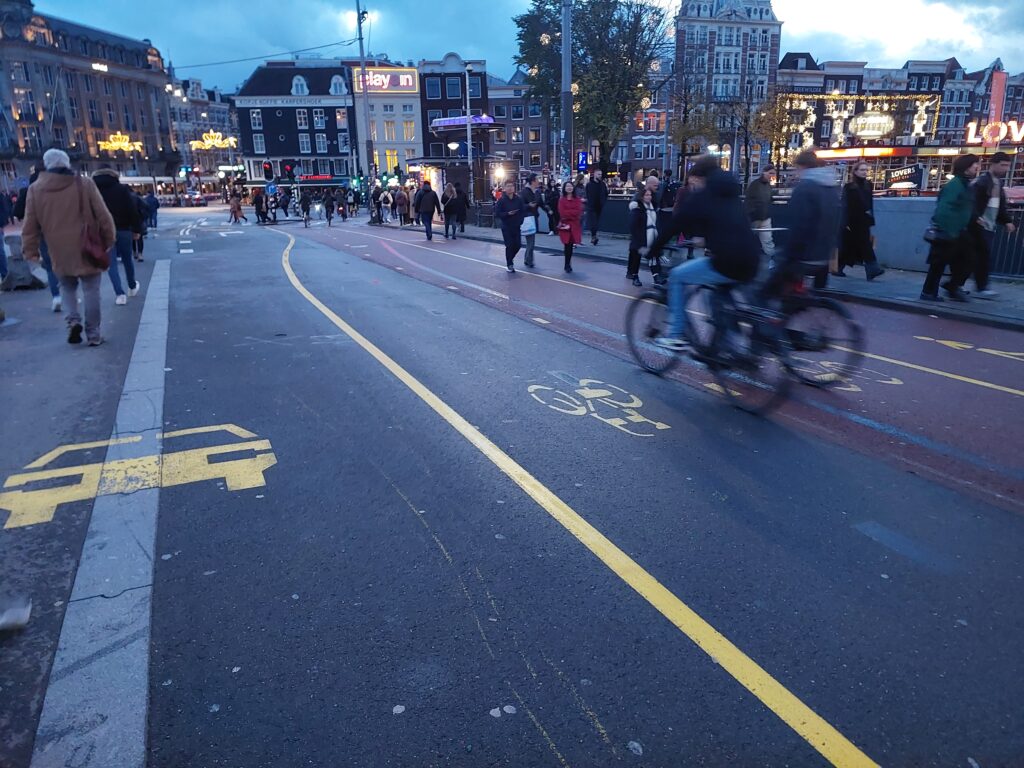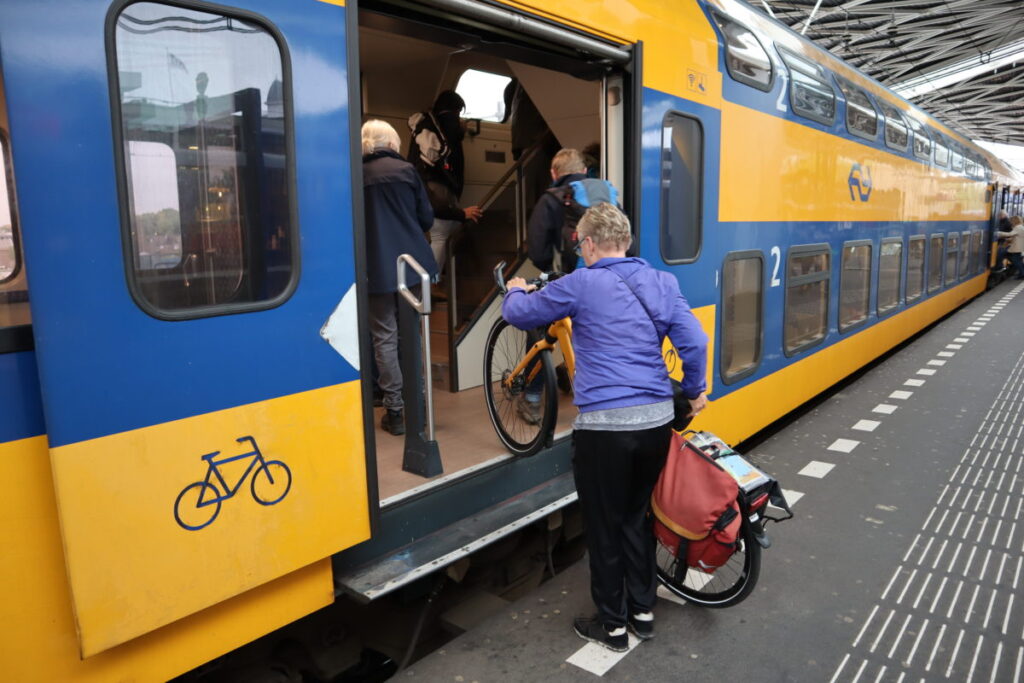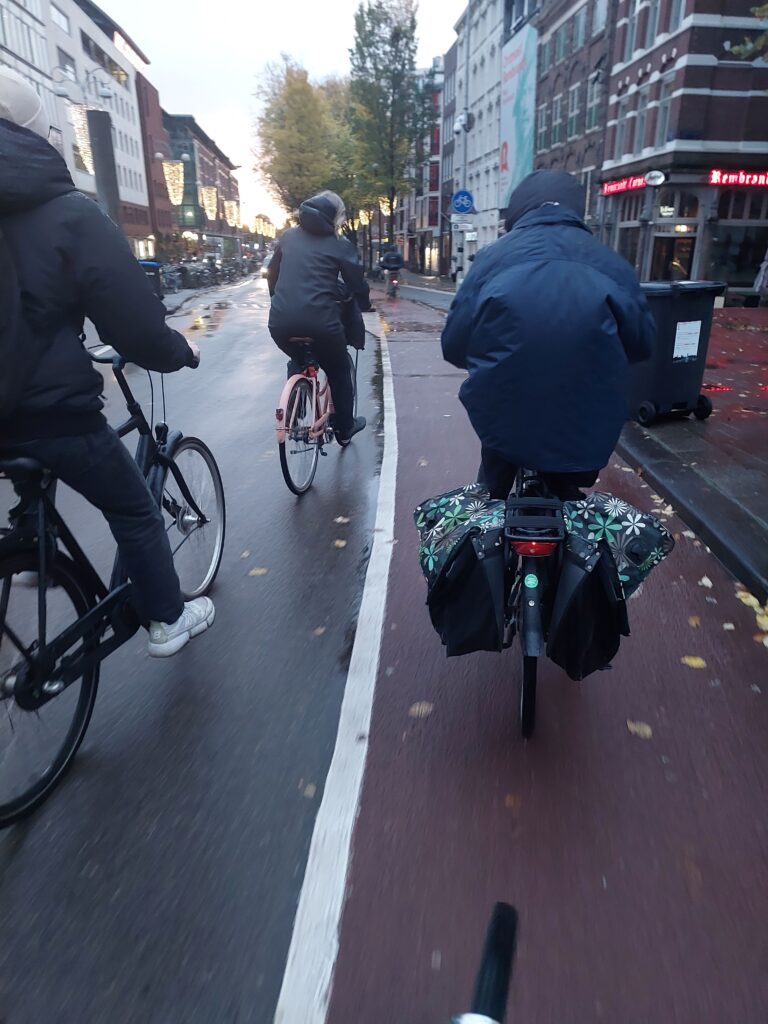Conducted by Anne Kubo| LinkedIn

Silonsaari’s PhD work discusses the politics of childhood and mobility in different European cities.
Anne Kubo: Please tell me a bit about your research topic!
Jonne Silonsaari: I’m interested in the governmentality underlying children and young people’s mobility, children’s right to the city, or right to the street. In Finland I was doing action research to understand the national policy process, how that is implemented locally, and eventually translated into children changing mobilities. And here in Amsterdam I am looking at a specific part of the city, Zuidoost, where cycling policy is negotiated quite differently compared to the rest of the city. I work together with community initiatives and activists to understand what their mobility rationalities are and what type of tactics they employ. In the European scale there’s many different components to these movements, there’s Kidical Mass, pop-up school streets and play streets, bike buses and so many more initiatives.
So, my ambition is to understand the politics of youth mobility in the broadest sense possible. The politics of parent-child relations, politics of young people’s biking subcultures, politics of the more organised activist groups, and politics embedded in specific urban areas like Amsterdam Zuidoost.
A: How do you understand governance?
JS: It is networked among different actors, and I see civic activity as an integral part of the policy process. There are all kinds of communities that children and adults find meaningful and I believe that change should start within those communities.
A: How do you conduct your research in terms of methodology?
JS: I do action research, but that entails a lot of different methods and takes many forms. Sometimes you end up spending a lot of time with the people just trying to create something very practical, and sometimes it can be very conceptual. It is all about making connections with theory and practice.
A: What is it like working so closely with these actors as a researcher? Has there been any pushback?
JS: I wouldn’t say that there have been a lot of controversies, I’m working for children’s autonomy, and no one is against children’s autonomy and mobility. But of course, there’s differences in how the actors dedicate themselves to those processes. And that affects their learning. The people need to have the resources to be devoted and throw themselves to the process and try to learn something and try to co-research with me, and that’s a lot to ask. So, there is always the pressure to be able to give back something concrete and actionable.
A: Do you ever have to compromise? How does that work for you?
JS: Of course. I mean, you’re always asking for stuff from people, and those civil servants, activists and community leaders are doing a lot of work, and you have to be conscious that you’re always asking for something extra.
And down the line my role is also to question and challenge their ways of working: the key is to question the ongoing or prevalent ways of looking at the world and it is always difficult for us as people. So, against this backdrop, compromising is an everyday research practice. You can’t plan everything ahead and you want to ‘keep it human’. Action research is a messy methodology…
A: What are some aspects of your work that are particularly fun?
JS: It’s really rewarding to work with the people who are out there trying to do stuff. In the beginning, they have no guarantees that this is going to turn into something useful to them. If at the end of the process you end up with something concrete that you can hand over, and they’re happy with that, those are the best moments. But I also like theoretical development – without it this would be no research.
A: Any lessons or wisdoms from your PhD that you want to share with others?
JS: Wisdoms on working in academia? No… People are drawn to research for different reasons and that leads to different outcomes, which is good. Personally, I am just very thankful for having to connect with so many different people by doing participatory research and seeing how they live and work.
You can also take a look at a summary of his new journal article with Marco te Brömmelstroet about explaining parents’ representations of children’s mobilities here:
From intensive car-parenting to enabling childhood velonomy?



